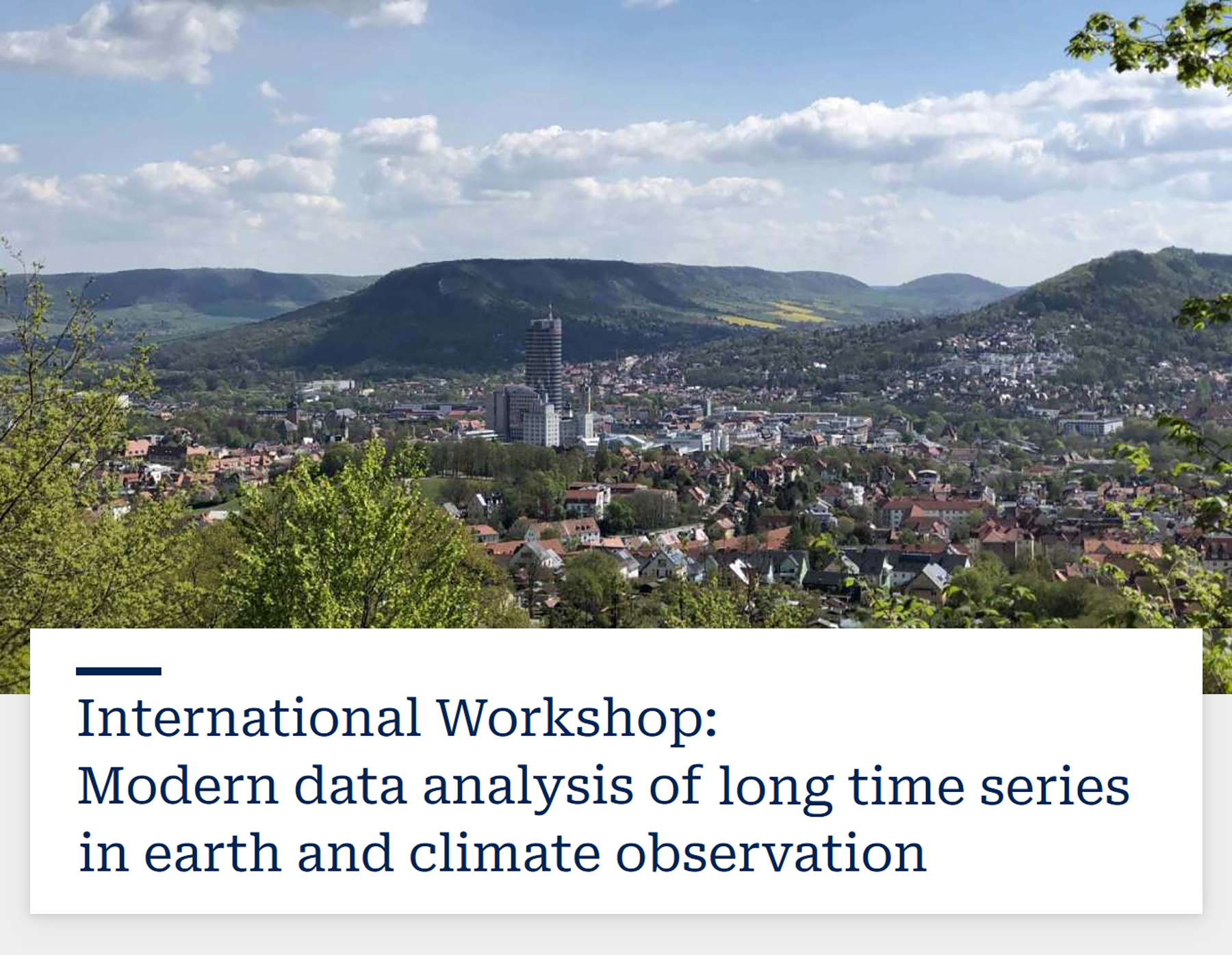21.-23. September 2022, Jena
The Chair of General Geophysics at the Friedrich-Schiller-University Jena and colleagues organize the International Workshop on Modern data analysis of long time series in earth and climate observation. They aim to bring together experts from many fields of geo- and climate sciences with computational and data scientists to discuss novel methods to analyze long-time series of multiple observation records.
Thanks to some funding, there is no fee to participate in the workshop, however, a small contribution for coffee and finger food is asked for. More information.
The distinction of a fluctuation from a long-term change in earth processes is a key question to better understand processes within the Earth and in the Earth-system. Likewise, it is a prerequisite for the assessment of the Earth’s climate change as well as risk assessment. This is also relevant in a socioeconomic framework such as maintaining drinking water safety and supply. However, to decipher such signals demands long time series of observation, mostly several decades. To detect reliable strain rates of deformation requires a minimum of a decade of continuous data, due to ambient and anthropogenic factors leading to fluctuations. Due to the decadal variability of sea level, reliable trends can only be obtained after about sixty years of continuous observations. Data obtained through such long-term recording are big data, not only because of the high temporal recording rates on the scale of seconds or minutes, but also because analyzing these data sets needs complementary data such as ambient temperature, air pressure and additional weather parameters. Further, data sets need to be processed and cleaned from outliers.
Foto: “Jena aus der Sicht vom Landgrafen” – Nina Kukowski
